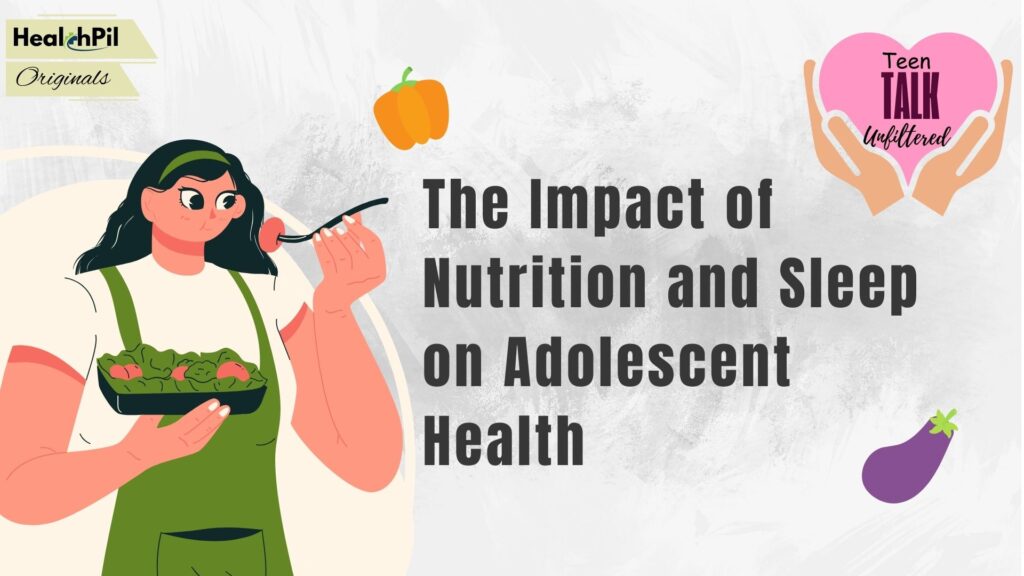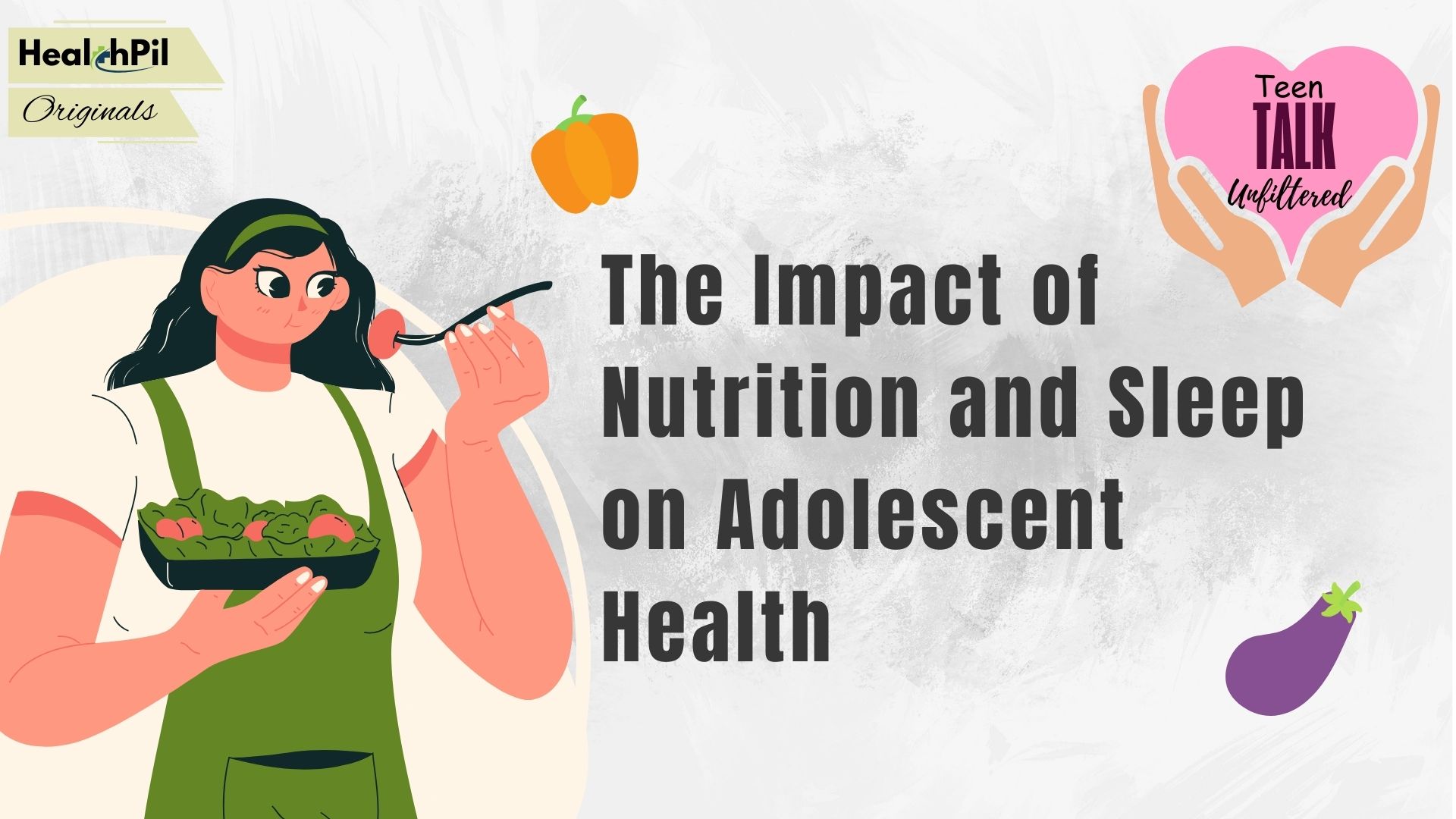
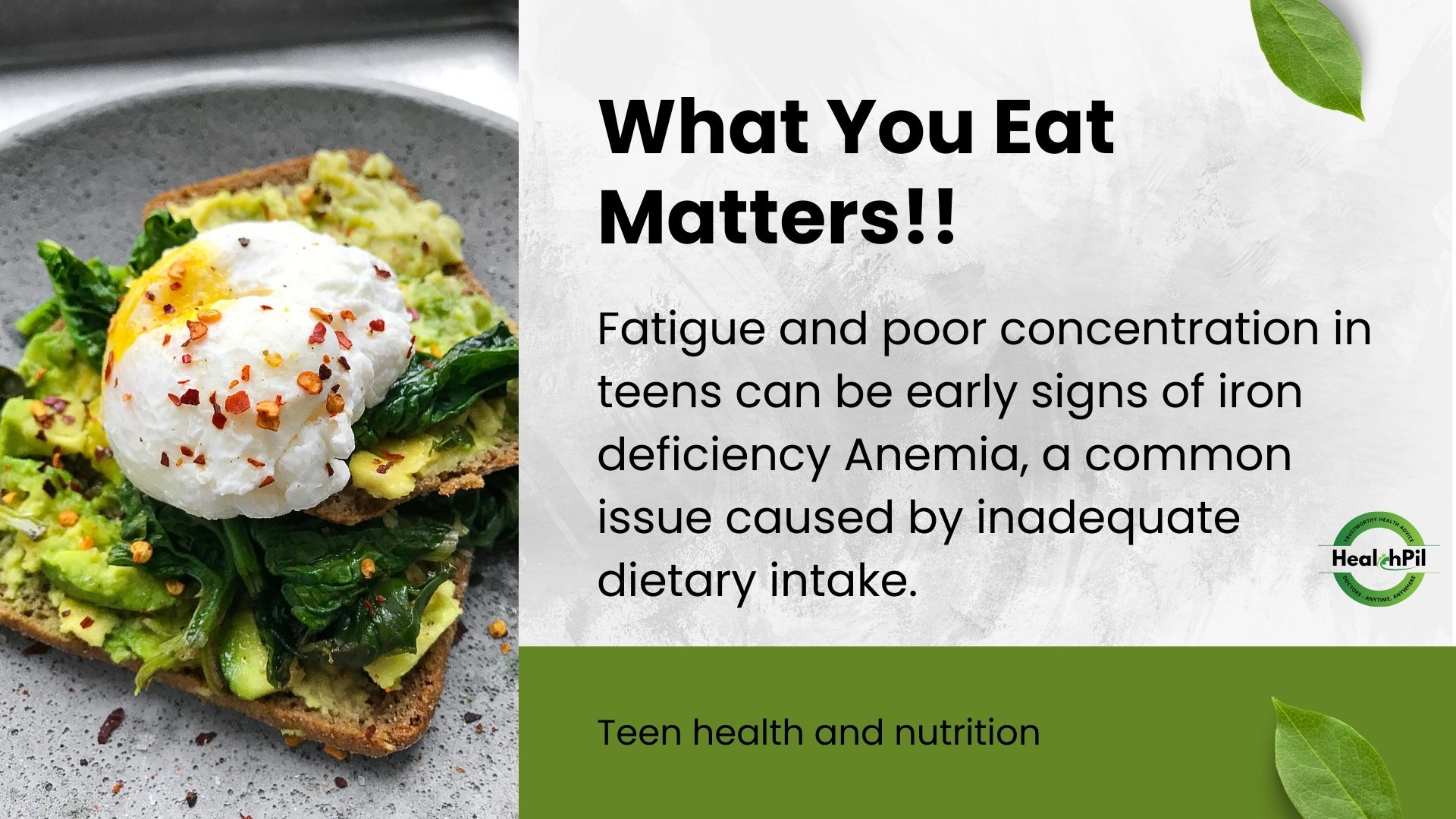
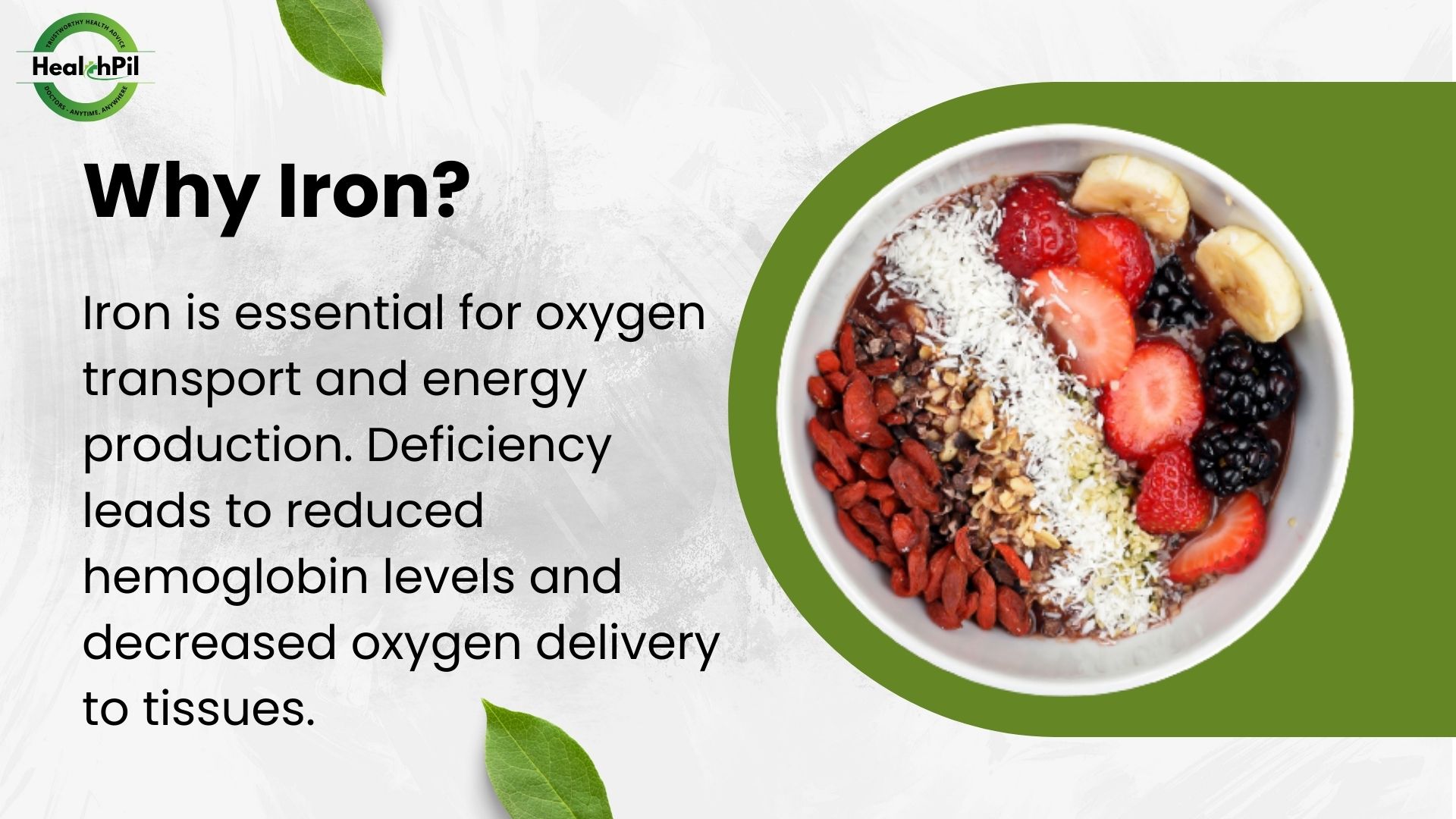
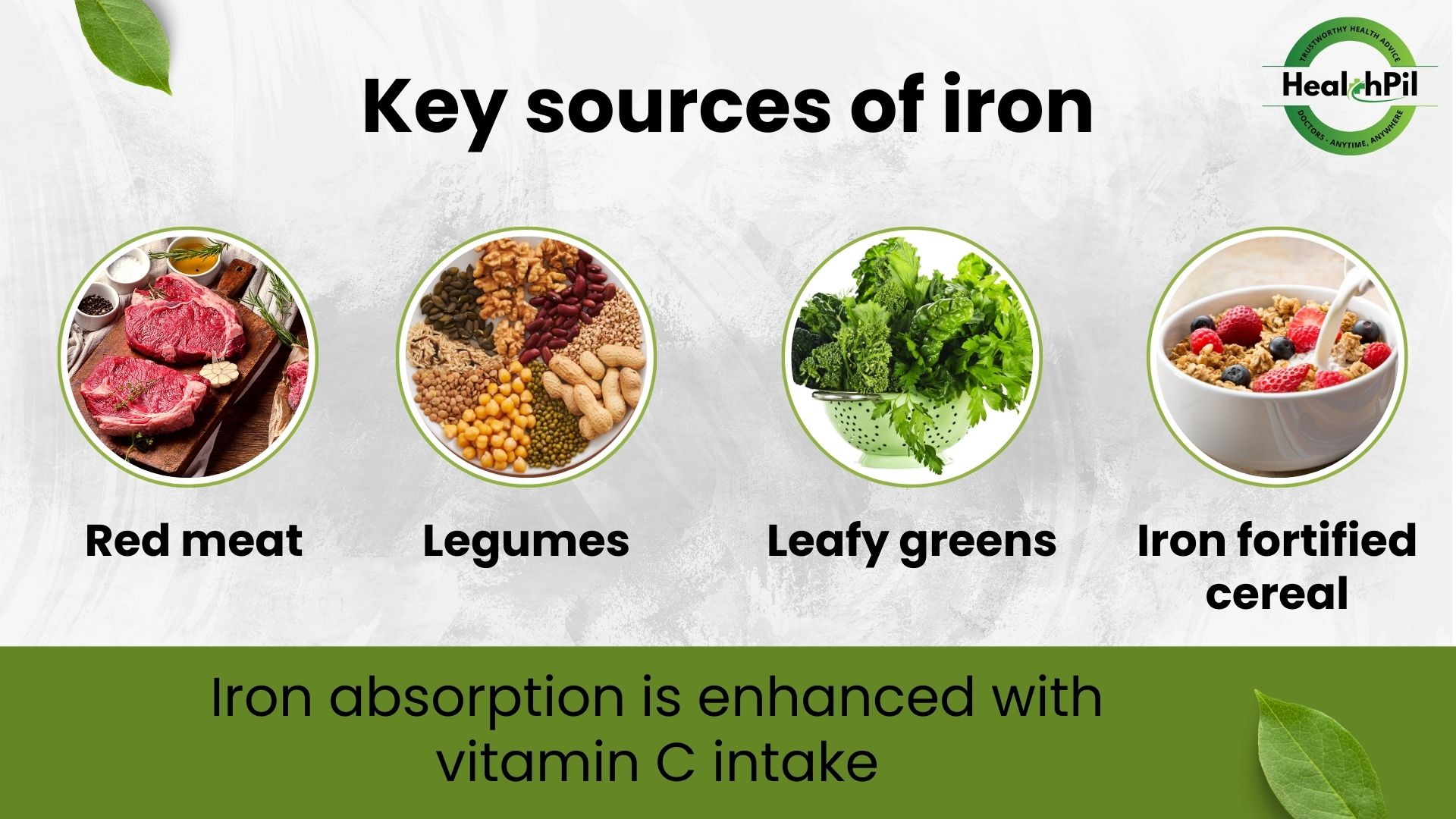
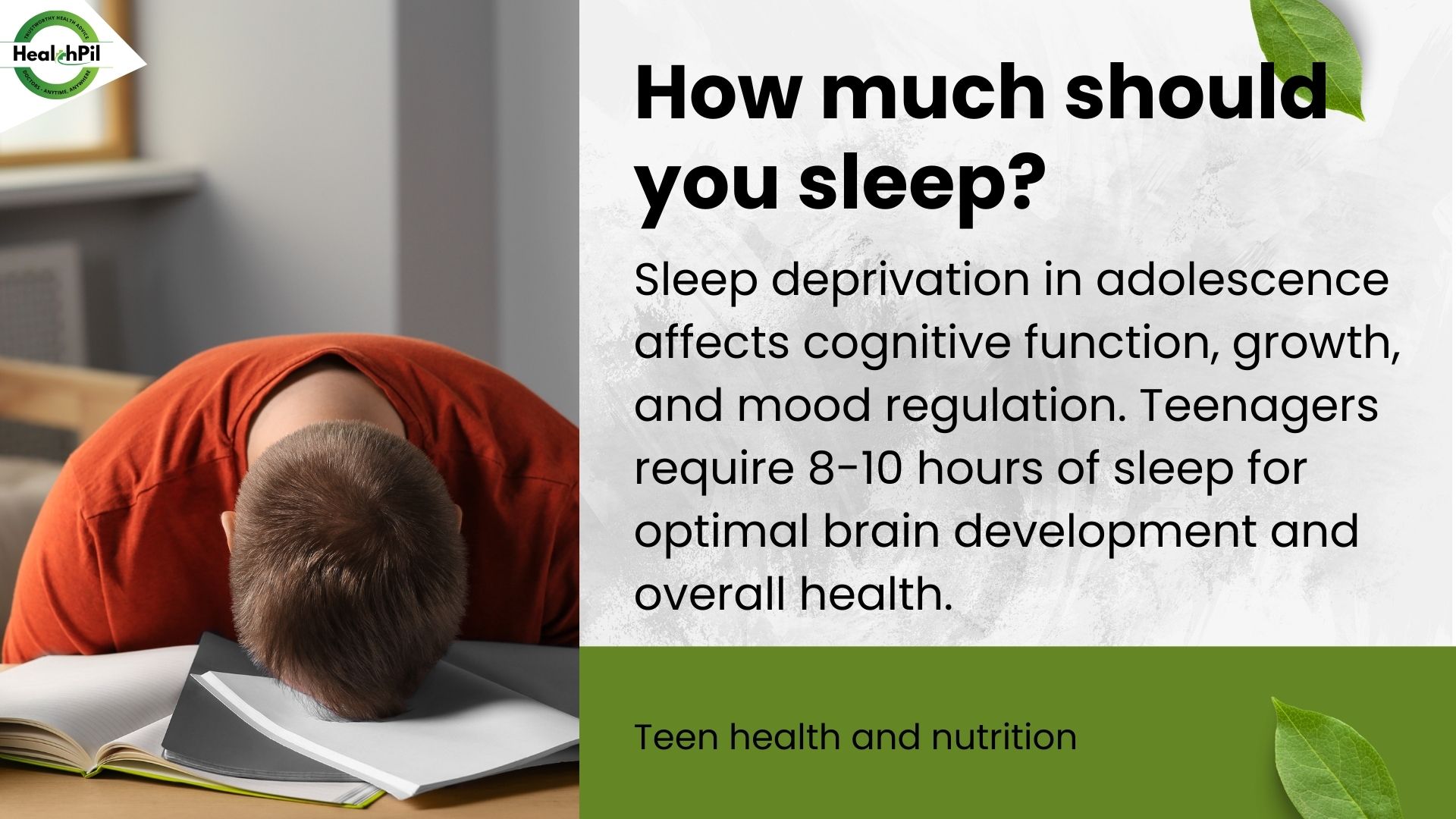

Meet Aisha, a 17-year-old facing the ups and downs of adolescence. Recently, she had been feeling unusually fatigued, dizzy, and had trouble concentrating. Her parents grew concerned, especially with her irregular eating habits and excessive mobile gaming. Aisha’s story highlights a growing issue among teens: the often-overlooked connection between nutrition, sleep, and overall health, particularly when it comes to iron deficiency anemia.
What is Iron deficiency Anemia?
Iron deficiency anemia occurs when the body doesn’t have enough iron, leading to reduced hemoglobin levels and poor oxygen transport. It’s a common condition seen among teenagers. It affects about 20% of teenage girls and 10% of the boys. Also, this shortage of iron can lead to symptoms like fatigue, weakness, and poor concentration. The major problem is that these symptoms can severely impact your teen’s ability to focus at school or even participate in everyday activities.
The Role of Iron in Health
Iron plays an important role in transporting oxygen and producing energy. Without enough iron, the body can’t deliver oxygen efficiently to tissues, which is why Aisha felt so drained. For a teen to thrive, iron is essential, and some of the best sources include:
● Red Meat: It is a great source of heme iron, which is easily absorbed by the body.
● Legumes: Beans and lentils are excellent plant-based options.
● Leafy Greens: Spinach and kale provide non-heme iron.
● Iron-Fortified Cereals: This is a quick and convenient breakfast option to boost iron intake.
Pairing iron-rich foods with vitamin C (like citrus fruits) can help improve absorption, making sure the body gets the most out of every meal.
The Impact of Sleep on Teen Health
For Aisha, lack of sleep also played a major role in her health struggles. Teenagers need atleast 8-10 hours of sleep per night to function at their best. But unfortunately, sleep deprivation often leads to mood swings, trouble concentrating, and a weakened immune system. For Aisha, this exhaustion made it even harder to manage schoolwork and maintain a healthy social life.
Aisha’s Journey to Recovery
Her family helped her immensely in making positive changes by recognizing how her lifestyle choices were affecting her health. Firstly, they addressed the nutritional gaps and ensured that she was getting enough iron in her diet.
Then, they focused on improving her sleep habits by establishing a regular sleep schedule and making her bedroom a more peaceful environment. These simple adjustments made a huge difference in Aisha’s energy levels, and soon enough, she was feeling more vibrant and focused.
What you can do as teens and parents
Aisha’s experience is a powerful reminder that nutrition and sleep are foundational to a teen’s health and well-being. Teens often don’t realize how their daily choices like what they eat and how much they sleep can affect their overall well-being. Parents can be a big help by encouraging balanced meals and healthy sleep habits. If you or someone you know is dealing with fatigue or trouble concentrating, it’s important to talk to a healthcare professional. By focusing on proper nutrition and sleep, teens can improve their health and do better in school, setting themselves up for a brighter future.
At HealthPil, we provide reliable health information and connect individuals with healthcare providers. Remember, the insights shared in this article are for educational purposes and should not replace professional medical advice.

